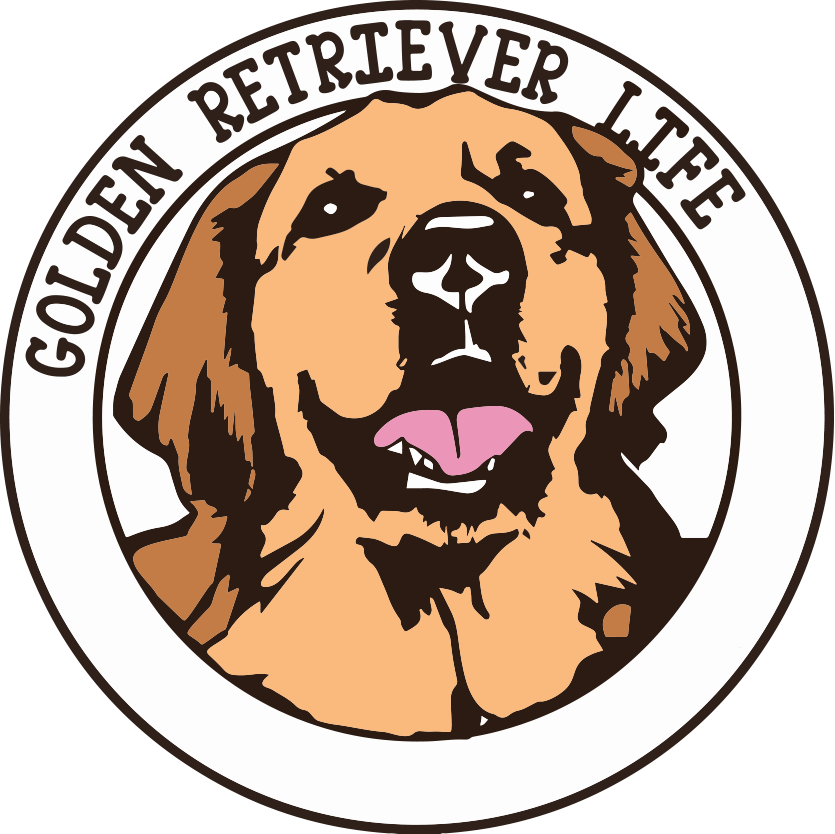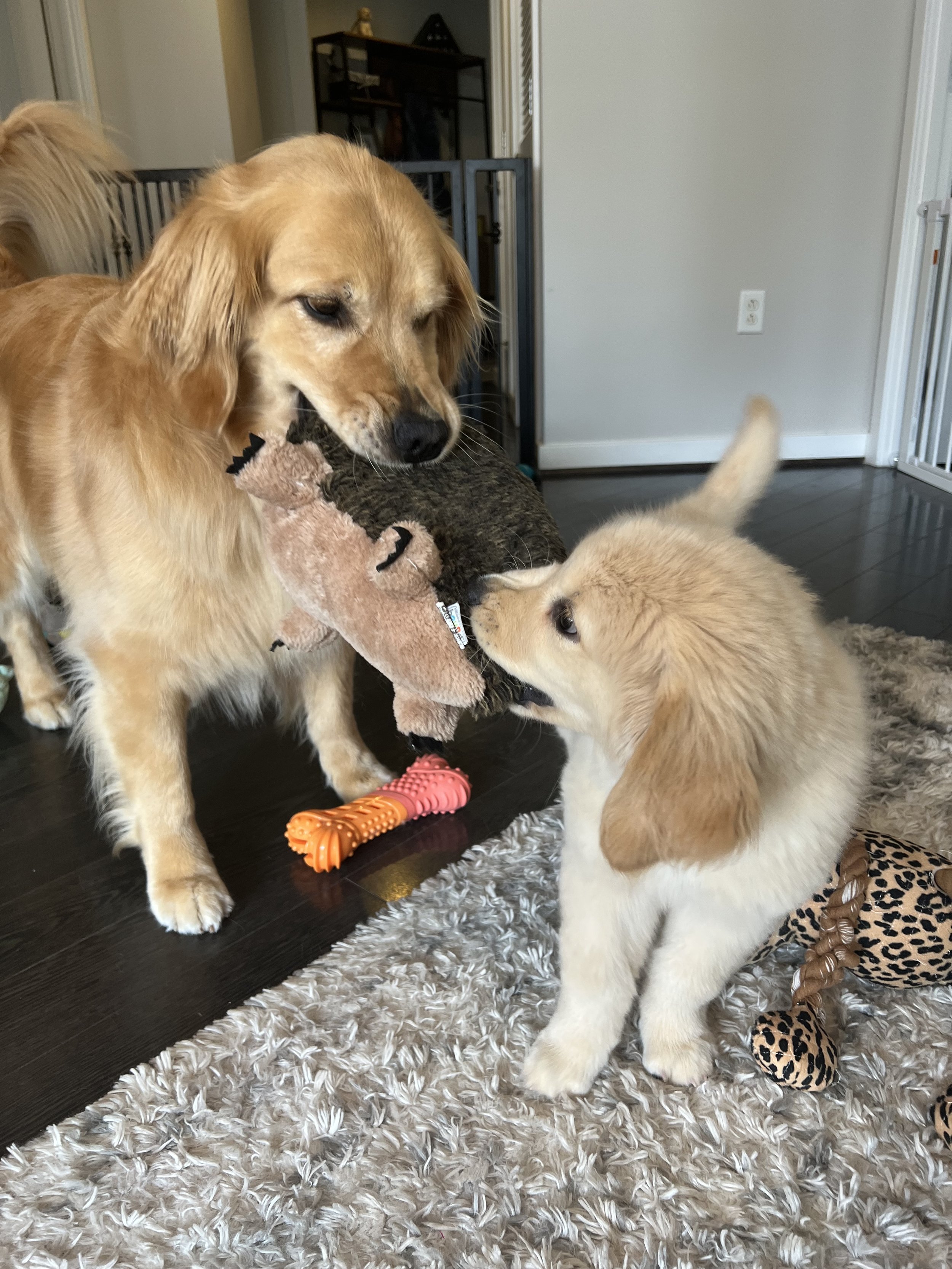How to Manage Puppy Biting
Puppies have shark teeth 🦈, aka razor-sharp teeth that want to latch on to anything and everything around them.
Puppy biting is a normal part of development, but we want you to feel prepared to handle it.
This blog provides a brief overview of the reasons behind puppy biting, which will help you select the most effective approach to address this behavior.
⭐️ If you’re looking for more training tips for your puppy, we created a FREE puppy program to help you build a solid training foundation. Click here to join us for free!
Why Do Puppies Bite?
It's important to understand WHY your puppy is biting so you can address the behavior appropriately.
Here are 5 reasons puppies bite:
Teething: Puppies typically start teething around 3-4 months of age and may bite to relieve discomfort in their gums. The process usually ends when all the adult teeth erupt around eight months.
Exploration: Puppies explore the world around them through their mouth, so they may bite or chew on objects to learn more about them.
Attention seeking: Sometimes, puppies may bite to get attention or affection from their owners.
Fear or anxiety: In some cases, puppies may bite out of fear or anxiety. This may happen if they are in an unfamiliar situation or feel threatened.
Play: One of the most common reasons why puppies bite is to play or engage with their environment, other animals, or humans.
How Do You Stop Puppy Biting?
While there's no magic solution to stop your puppy from biting, here are four practical ideas for managing this behavior.
1️⃣ Exercise
Ask yourself, has my puppy had exercise in the last few hours? Often, the biting is a sign they have energy to burn.
Try short sessions based on age.
The general rule of thumb is puppies can exercise 5 minutes per month of age, up to twice a day. So if you had a 3-month-old puppy, two 15-minute exercise sessions would be ideal. This rule applies until your puppy is fully grown.
2️⃣ Mental stimulation
When your puppy starts biting, pivot to a quick training session or enrichment toys.
To learn skills for a quick training session, check out our app for video and text tutorials of basic skills.
Enrichment toys are often interactive and require dogs to use their problem-solving skills to learn how to access the treats or rewards inside. These toys embrace innate behaviors like nose work, chasing, chewing, and playing.
This blog reviews our top 5 favorite enrichment toys, including many you can make easily at home.
3️⃣ Redirect with a Toy
If your pup starts biting your clothing, give them a more appropriate option to dig their teeth into.
Keep soft chew toys around the house so you can grab one as quickly as possible.
Long fleece tug toys are great because they allow plenty of space between their shark teeth and your hands (especially if you have kids playing with your puppy!)
I would recommend avoiding rope toys at this point because they are hard to sink teeth into, and they may avoid the toy and keep trying to go for you instead.
Long-term chews are another great option (safely secured in a Bow Wow Buddy).
4️⃣ Socialization
Puppies are initially unaware of how sharp their teeth are and how hard their bite can be.
Allow your puppy to interact with other puppies in a safe environment to help them learn appropriate play behavior and bite inhibition. Your puppy will start learning how hard their bite can be, as their playmates will squeal and withdraw when bitten too hard. This helps your puppy understand they must be less rough with their biting during play.
Emma went to “puppy parties” once a week until she was 14 weeks old to play with other puppies in a safe, enclosed area with supervision.
I’d recommend making puppy socialization with other puppies a top priority in the first few weeks.
🔹 This blog explains the importance of puppy socialization.
When Do Puppies Stop Biting?
At the height of this phase, I often questioned when it would ever end. It's essential to recognize that this stage is part of their normal development and is temporary.
The peak of puppy biting typically occurs during the teething phase, which typically begins around three to four months of age. This challenging period usually subsides as all the adult teeth emerge, usually around eight months.
We hope this blog serves as a valuable resource to guide you through the puppy biting phase.
Interested in more training tips for your puppy?
We created an app for you! Join us today for free! 🙂












